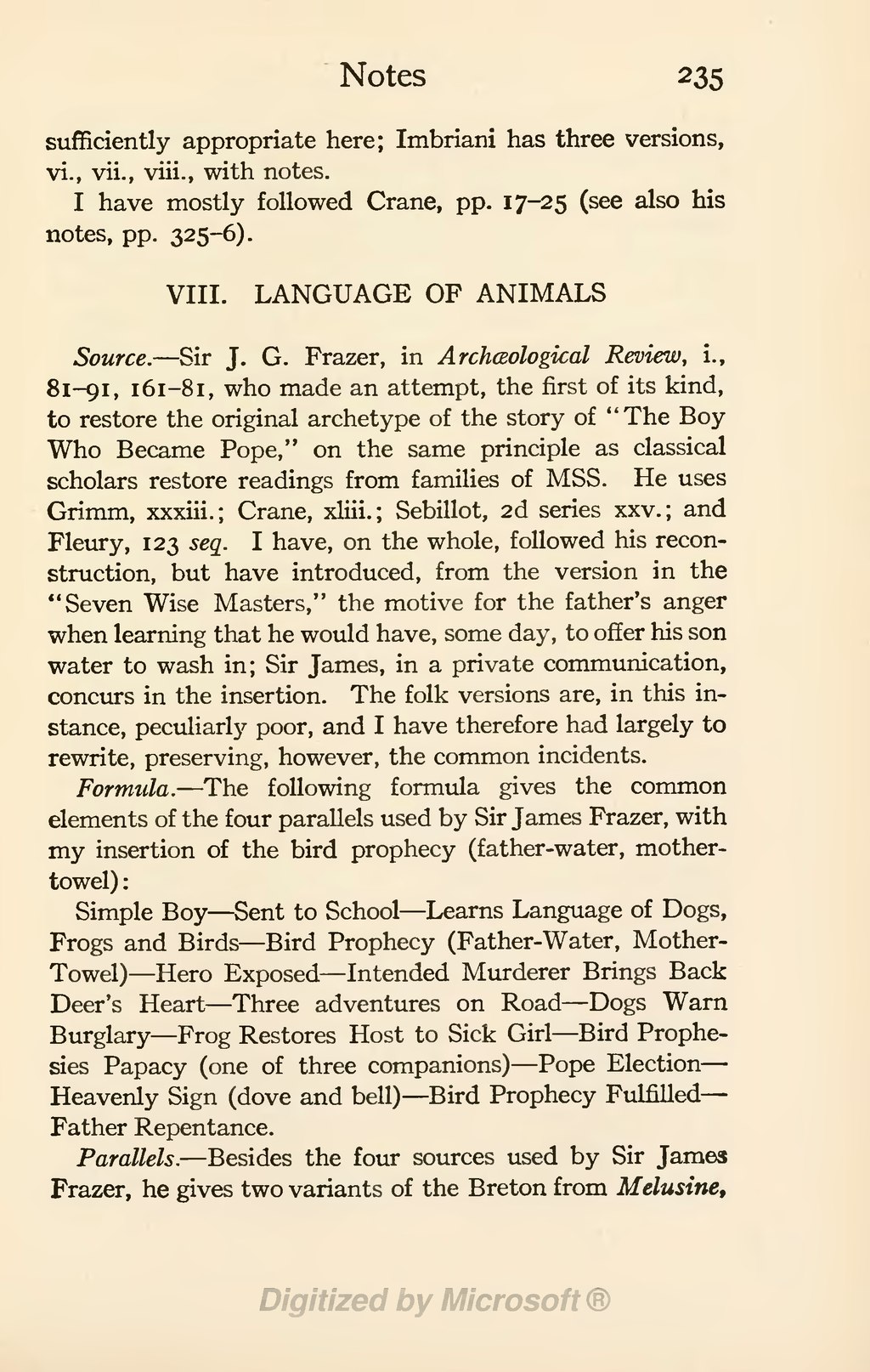sufficiently appropriate here; Imbriani has three versions, vi., vii., viii., with notes.
I have mostly followed Crane, pp. 17-25 (see also his notes, pp. 325-6).
VIII. LANGUAGE OF ANIMALS
Source.—Sir J. G. Frazer, in Archæological Review, i., 81-91, 161-81, who made an attempt, the first of its kind, to restore the original archetype of the story of "The Boy Who Became Pope," on the same principle as classical scholars restore readings from families of MSS. He uses Grimm, xxxiii.; Crane, xliii.; Sebillot, 2d series xxv.; and Fleury, 123 seq. I have, on the whole, followed his reconstruction, but have introduced, from the version in the "Seven Wise Masters," the motive for the father's anger when learning that he would have, some day, to offer his son water to wash in; Sir James, in a private communication, concurs in the insertion. The folk versions are, in this instance, peculiarly poor, and I have therefore had largely to rewrite, preserving, however, the common incidents.
Formula.—The following formula gives the common elements of the four parallels used by Sir James Frazer, with my insertion of the bird prophecy (father-water, mother-towel):
Simple Boy—Sent to School—Learns Language of Dogs, Frogs and Birds—Bird Prophecy (Father-Water, Mother-Towel)—Hero Exposed—Intended Murderer Brings Back Deer's Heart—Three adventures on Road—Dogs Warn Burglary—Frog Restores Host to Sick Girl—Bird Prophesies Papacy (one of three companions)—Pope Election—Heavenly Sign (dove and bell)—Bird Prophecy Fulfilled—Father Repentance.
Parallels.—Besides the four sources used by Sir James Frazer, he gives two variants of the Breton from Melusine,
